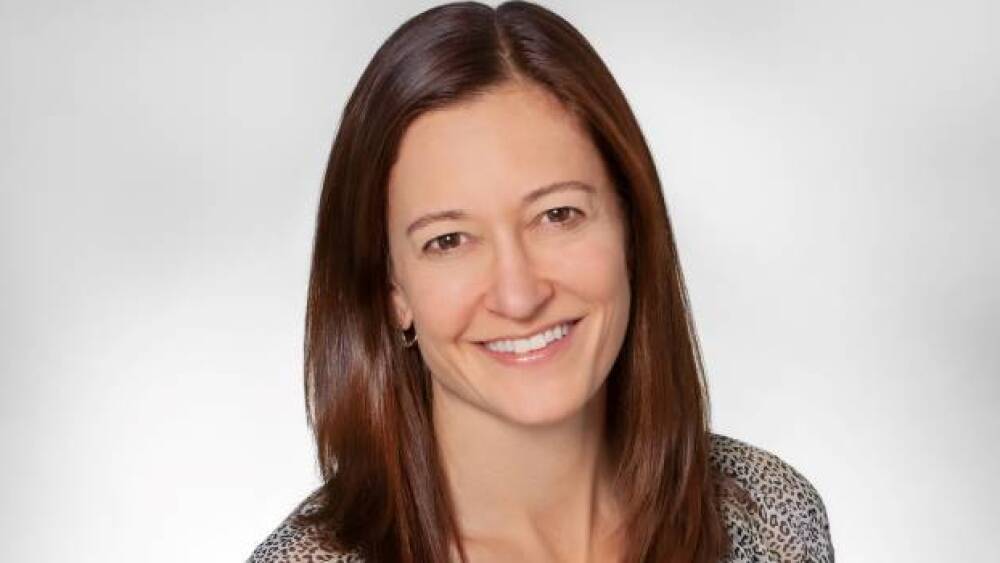“I hope to thread the needle between pricing responsibly and achieving profitability,” Jarrett said.
Arcus Chief Operating Officer Jennifer Jarrett/Courtesy Arcus Biosciences
Startup biotech companies walk a fine line between developing the organization and achieving profitability and sustainability. Jennifer Jarrett, chief operating officer at Arcus Biosciences, helped a lot of companies find that balance during her days as an investment banker with Credit Suisse and Citigroup and, later, as head of corporate development and capital markets at Uber, and chief financial officer at Medivation.
“There’s a parallel between biotech and high tech,” Jarrett told BioSpace. “In tech, everyone thought spending money was good. The more you spent, the better.” The tech industry is rethinking that position, but biotech still has a bit of that mentality. “But you can’t spend money forever. At some point you have to become profitable,” Jarrett said. “I hope to thread the needle between pricing responsibly and achieving profitability.”
Her move from finance to biotech was “a combination of instinct, gravitational pull and luck,” she said. “My father was a physician, so I grew up around medicine. I attended Dartmouth College for premed, but ultimately chose economics – specifically, investment banking.”
While studying for her MBA at Stanford University Graduate School of Business, she worked on a paper analyzing adverse events reporting systems. That reignited her interest in healthcare and led to a position at Donaldson, Lufkin & Jenrette (DLJ), an investment banker that in 2000 was acquired by Credit Suisse.
“At the time, biotech was still taking off. Most investment bankers weren’t focusing on it, so I became a biotech specialist and helped build DLJ’s life science business on the West Coast.” DLJ exposed Jarrett to the inner workings of some of biotech’s biggest players at the time.
After working with biotech companies from the banking side, she joined the industry directly, becoming CFO of Medivation just seven months before it was acquired by Pfizer. When the rumors arose of an impending acquisition, Arcus CEO Terry Rosen, Ph.D. contacted Jarrett. “‘It looks like you may not be staying at Medivation long,’ he said, and started courting me for Arcus,” she recalled.
It was an interesting career possibility that resonated with her personal interests. “I had a natural passion for oncology,” she said. “A friend was diagnosed with ovarian cancer and my mother was diagnosed with acute myeloid leukemia.” Jarrett’s mother participated in nine clinical trials before succumbing to the disease. Her friend also passed away. “Watching what they both went through made me want to do something to create better medicine and to get closer to patients.”
Initially, she considered working in some capacity with MD Anderson Cancer Center (where her mother had been treated) but, she said, “my mind kept coming back to Arcus.” Arcus is designing small molecule drugs with the intent to combine them with others to create synergistic activities that result in best-in-class cancer therapies. It focuses on well-understood pathways that, as yet, lack effective medicines. Currently, Arcus has several molecules in development:
- Etrumadenant, a dual A2aR/A2bR antagonist small molecule
- Quemliclustat: a CD73 inhibitor small molecule
- Domvanalimab: a TIGIT mAb
- Zimberelimab: a PD-1 mAb
Those four molecules form the basis of seven programs targeting four of the most common cancers: lung, colon, prostate and pancreatic. For some programs, Arcus has partnered with Gilead Sciences and Taiho Pharma.
The decision to join Arcus was made easier by her experience with the company’s CEO and president. Jarrett has known Rosen and Arcus President Juan Jaen, Ph.D. since her Citibank days. “They’re willing to constantly review processes and find ways to do things more efficiently…and they’re also not afraid to cut their losses,” she said. Those are important traits for young companies, in particular.
Rosen was smart to approach Jarrett early. “After Medivation was acquired, I got a lot of calls from people I knew in banking. They associated me with the successful sale of a company,” she said. With that experience, well-established ‘street cred’, and a strong network in financial circles, she was a natural fit for biotech boards of directors. Right away, she joined the boards for Audentes Therapeutics and Arena Pharmaceuticals.
As a female board member, there are hurdles, but also some advantages. “As you become more senior in your career, you’re expected to have late-night drinks or play golf with people.” That can be difficult for many women, she said. The advantage is that women generally are less openly competitive than men and tend to excel at the softer skills. As a result, “I’ve developed friendships and a level of trust with male executives that has helped them open up more.” This helps make her a well-informed, trusted advisor.
While she’s no less committed to Arcus and the companies she advises, her priorities have shifted because of the COVID-19 pandemic. As Jarrett explained, “I think probably, until COVID-19, I had been focused on work first, and then family – including my seven-year-old daughter – second. Like all of us, I spent time with them working from home during the pandemic and realized how happy I am being home with my family. I feel I have a real work/life balance now.” That means free time is consumed by her family.






